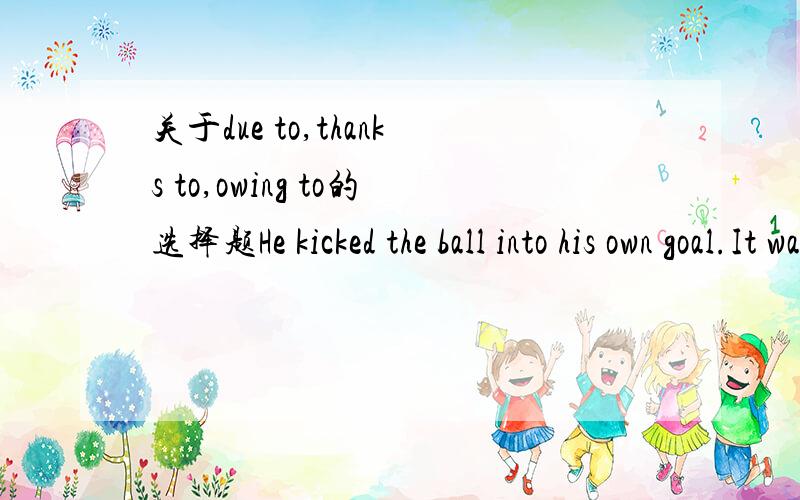关于due to,thanks to,owing to的选择题He kicked the ball into his own goal.It was____his stupidity____we won the game.A.thanks to,that B.due to,that C.owing to,which D.on account of,which答案A,为什么?
来源:学生作业帮助网 编辑:作业帮 时间:2024/12/01 01:34:31

关于due to,thanks to,owing to的选择题He kicked the ball into his own goal.It was____his stupidity____we won the game.A.thanks to,that B.due to,that C.owing to,which D.on account of,which答案A,为什么?
关于due to,thanks to,owing to的选择题
He kicked the ball into his own goal.It was____his stupidity____we won the game.
A.thanks to,that B.due to,that C.owing to,which D.on account of,which
答案A,为什么?
关于due to,thanks to,owing to的选择题He kicked the ball into his own goal.It was____his stupidity____we won the game.A.thanks to,that B.due to,that C.owing to,which D.on account of,which答案A,为什么?
在意义上,除了thanks to通常用于好的方面,译为“多亏”外,其他几个短语的区别不大,都表原因,但在用法上稍有不同.
owing to可以做状语和表语,在做状语时一般要在该状语后面加上逗号.
Owing to his careless driving,we had a bad accident.由于他驾驶疏忽,我们发生了次大车祸.
due to做状语时一般不置于句首,也可以做表语和定语.
Your failure is due to negligence.你的失败是由于疏忽所造成的.
because of应用最广,也更口语化.
Because of his wife’s being there,I said nothing about it.因为他妻子在场,我对此事只字未提.
as a result of ,on account of意义大体一样,用法也无区别.